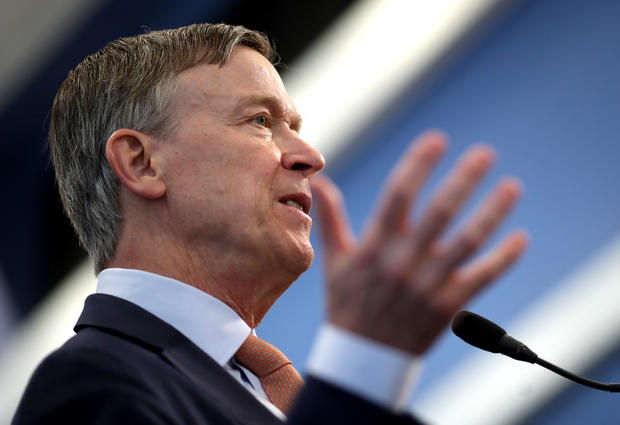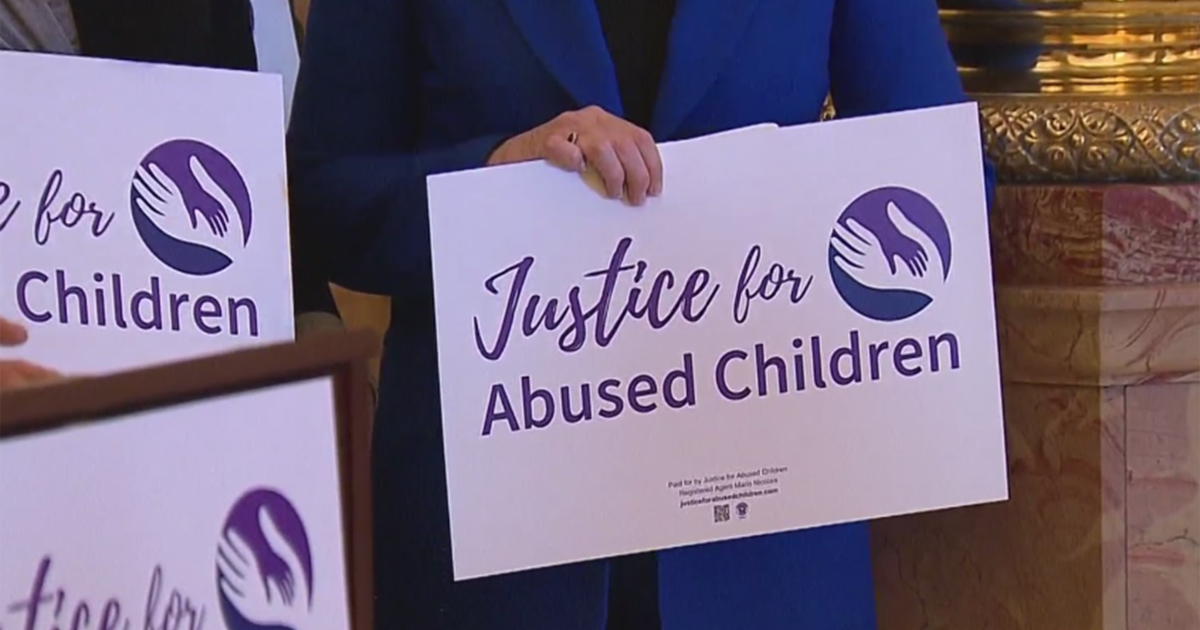John Hickenlooper, Other Democrats Seeking Senate Seats, Grapple With How To Campaign Amid Coronavirus Pandemic
(CNN) - When asked how much blame he thought President Donald Trump shared for the spread of coronavirus, former Colorado Gov. John Hickenlooper said, "I think in a crisis you don't want to divide people." The Democratic Senate candidate then blurted out, "I can't restrain myself." He had to mention the country's lack of testing.
"That's the single essential component of addressing any seriously contagious pandemic," Hickenlooper said.
His conflicting impulses revealed an inner struggle for all of the challengers trying to wrest the Senate from Republicans: how to campaign during a crisis.
Last month, the Senate unanimously passed a $2 trillion-plus bill, the largest economic stimulus package in history. This week, it passed an additional $480 billion relief package without opposition.
The forceful response has again shown the power of incumbency. Senate Republicans in tough races across the country are noting to the dollar how much aid they've brought home, while Democratic challengers try to attack their opponents while aiming to unify the country during a terrible time.
In interviews with Hickenlooper and other challengers in the most competitive Senate races, it was clear that Democrats see an opening in the rocky implementation of the aid. In North Carolina, Cal Cunningham is "very concerned" about the lack of "vigorous and meaningful mechanisms for oversight." In Maine, state House Speaker Sara Gideon said "there is no doubt" that the lack of testing and personal protective equipment "is because of a lack of federal leadership." And in Colorado, Hickenlooper is worried not only about testing but also that the small business loan program Congress gave hundreds of billions of dollars to prioritizes larger companies with connections rather than smaller ones.
Still, the Democrats had an urge to soften any blow against the President.
After criticizing the Trump administration's coordination of the supply chain with state governments, Gideon told CNN, "I try not to think about how we throw stones in there, but we acknowledge where the deficiencies and leadership are so that we can come together and overcome them."
In their attempt to take back the Senate this year, Democrats enjoy a number of advantages: an unpopular Republican President, a map putting them on offense and several strong recruits who raised more money in the first quarter of 2020 than their opponents. Knocking off four Republicans -- or three if Democrats win the White House -- to flip the Senate is within their reach.
But the virus has suddenly changed the daily life of Americans -- and the campaigns to elect their leaders along with it. In the United States, over 843,000 people had tested positive for the virus and over 46,000 had died, according to CNN's tally as of Thursday evening. Americans have been told to stay at home. Businesses, schools and churches have closed. The stock market has tanked. In the past six weeks, over 26 million Americans have filed for unemployment benefits.
In such a dismal environment, politicians have to balance how to make their points without appearing petty. Some campaigns have not only turned virtual, but more charitable. Hickenlooper's has contacted 200,000 Coloradans "just to check in" and has raised money online for the Restaurant Workers Relief Fund. Gideon's campaign staff has donated blood and brought groceries to people who are at risk. In Arizona, Democrat astronaut Mark Kelly raised thousands for the Arizona Food Bank Network, while Republican Sen. Martha McSally spent 15 days raising thousands more for the Salvation Army.
Meanwhile, many Republican senators are running on the billions they've sent to their states.
In Maine, Majority Forward, an outside group affiliated with Senate Democratic leader Chuck Schumer, released an ad saying, "Once again, Susan Collins defends the President" despite a lack of PPE.
Collins campaign spokesman Kevin Kelley responded this week, saying 600,000 pieces were sent to Maine -- according to the head of the state's Centers for Disease Control and Prevention -- enough to fill six tractor trailers with items like N95 masks, surgical masks, face shields and gloves. The senator's campaign is up with a response ad, highlighting that Collins helped secure over $2 billion for loans to Maine small businesses in the recent legislation. "So while they spend millions on lies, Susan keeps working for Maine," the ad's narrator says.
In response to the aid appropriated for Maine, Gideon told CNN that she's "glad to see some of the things that they have done."
"I know Senator Collins is trying very hard to lift those things up and take credit for them but we are going to continue to point out what else needs to be done and to also contrast the work that is being done there in the US Senate with the ways we have met people's needs here in the state of Maine and under my leadership in the legislature as well," she added.
What's happening in Maine is happening in the other races crucial to Senate control.
GOP Sen. Thom Tillis of North Carolina claims to have secured over $9.5 billion for his state, including $8 billion in loans for small businesses and over $1.5 billion for health care providers, higher education institutions and airports. Colorado Sen. Cory Gardner has obtained for his state 100,000 N95 masks from Taiwan and got tens of thousands of test kits from South Korea. (In April, he told The Colorado Sun that "nobody gives a s*** about the campaign — they are worried about themselves, their businesses, their families, how they are going to put food on the table.")
Some Democrats maintain that the pandemic has only reinforced their health care-first campaign focus.
"It just magnifies the issues that we were already talking about -- some basic health care should be a right not a privilege," said Hickenlooper, who ran for his party's presidential nomination for a stretch last year.
Cunningham told CNN that he's hearing "an awful lot about the need for us to close very real gaps in medical coverage" in part because Tillis, as state House speaker, did not help North Carolina expand Medicaid. (Tillis' campaign did not respond to a CNN request for comment.)
Cunningham also nodded to the purple nature of his state, which Trump carried in 2016, saying that even before the pandemic, he pledged to work with whoever the next president is -- Trump or former vice president Joe Biden -- and hold them accountable.
"My job is going to be to give voice to North Carolina," he said.
By Alex Rogers and Sunlen Serfaty, CNN
The-CNN-Wire ™ & © 2020 Cable News Network, Inc., a WarnerMedia Company. All rights reserved.




